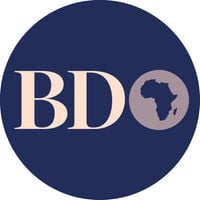
Tourists at a hotel in Diani. FILE PHOTO | NMG
Summary
- Concerns over the risk of transmission of the highly contagious coronavirus variant have slowed return of tourists to Kenya, exerting further pressure on the shilling.
- Economists from world’s leading banks, consultancies and think-tanks — polled between February 16 and 21— said recovery of the battered tourism sector is being held back by worries over rising risk of transmission of the contagious virus strain.
- Ministry of Health said earlier in the month it had reactivated Covid-19 surveillance at the ports of entry to help in early detection of the highly contagious virus strain.
Concerns over the risk of transmission of the highly contagious coronavirus variant have slowed return
of tourists to Kenya, exerting further pressure on the shilling.Economists from world’s leading banks, consultancies and think-tanks — polled between February 16 and 21— said recovery of the battered tourism sector is being held back by worries over rising risk of transmission of the contagious virus strain.
Ministry of Health said earlier in the month it had reactivated Covid-19 surveillance at the ports of entry to help in early detection of the highly contagious virus strain.
The new variant has been reported in countries including the UK and South Africa— key sources of tourists in pre-Covid period — touching off fresh rounds of tighter restrictions.
“Looking ahead, the tourism sector will remain downbeat as renewed restrictions to curb further waves and new variants of the virus continue to inhibit international travel,” analysts at FocusEconomics, which conducts the monthly survey, wrote in an outlook report Tuesday evening. “Nevertheless, the continuity of accommodative monetary policy should support activity and cushion the downturn somewhat.”
Last year’s drop in tourist earnings — Kenya’s second largest forex earner pre-Covid— was largely responsible for 7.18 percent depreciation of the shilling against the US dollar to 109.17 units.
Provisional data by the Kenya National Bureau of Statistics (KNBS) showed international arrivals plunged 1.1 million, or 71.5 percent, to 439,447 visitors last year when international travel restrictions in the first half brought the sector to a near-collapse.
“The drag on tourism (Kenya’s key source of export receipts) from Covid-19-induced restrictions contributed to depreciation pressure on the shilling,” analysts at JPMorgan, US giant investment bank, said in the report.
“We note that the CBK (Central Bank of Kenya) will still be able to smooth any short-term exchange rate volatility if the currency comes under severe and sustained pressure.”
Kenya’s current account deficit — the gap between net foreign exchange inflows and outflows — narrowed to a decade low of 4.8 percent of gross domestic product (GDP) last year, supported largely by reduced demand for imports.
The CBK late last month attributed this to “savings from lower oil import bill, strong performance of agricultural exports and resilient remittances”.
CBK governor Patrick Njoroge has forecast the current account deficit to hover around 5.1 percent of GDP this year and stabilize around five percent in medium term.


No comments:
Post a Comment